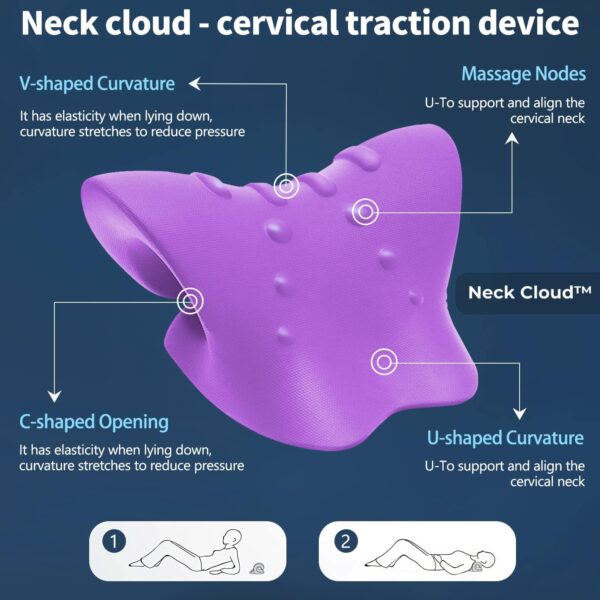The Impact of Tension on Neck Pain: Methods for Decreasing Stress and Discomfort
In today's busy globe, it's no trick that stress has actually become a common element in the beginning and exacerbation of neck discomfort. Join us on a trip to unwind the effect of stress on neck discomfort and uncover effective methods to alleviate pain and improve overall quality of life.
Understanding Stress-Related Neck Discomfort
Neck discomfort is a typical problem that can typically be credited to tension. Stress-related neck pain can materialize as tension, tightness, or discomfort in the neck and shoulder area. The connection between anxiety and neck discomfort depends on the body's physical response to stress and anxiety, which can result in muscle stress and tightness in the neck muscular tissues. Chronic anxiety can bring about persistent neck pain and worsen status quo like cervical spondylosis or muscle stress.

Identifying Common Stress Locations
Often experienced by people under stress, stress areas in the body can give beneficial insights into the physical indications of mental strain. One typical tension location is the neck, where anxiety commonly materializes physically. Tension frustrations, rigid neck muscles, and restricted range of movement are usual signs and symptoms of stress-related neck tension. The shoulders are one more typical location where tension gathers. Tension can cause the muscle mass in the shoulders to tighten, bring about discomfort and discomfort. Furthermore, the upper back is vulnerable to stress build-up, specifically in individuals who experience persistent stress. Poor stance and long term sitting can aggravate stress around. The jaw is also an usual location for stress-related stress, as lots of people clench their jaw or grind their teeth when worried. Knowing these common tension locations can assist people acknowledge the physical signs of tension and take steps to address them prior to they rise into chronic discomfort or pain.
Applying Leisure Techniques
Relaxation strategies are beneficial tools for decreasing neck discomfort created by stress and anxiety. Additionally, activities like yoga exercise and tai chi include both physical movement and leisure, making them reliable practices for lowering anxiety and neck pain. By integrating these relaxation techniques right into your daily regimen, you can assist manage tension levels, decrease stress in the neck, and alleviate pain connected with stress-induced neck pain.
Integrating Self-Care Practices
Integrating self-care practices is vital for keeping general health and managing stress-related neck pain efficiently. Participating in routine exercise, such as mild extending workouts or yoga exercise, can assist reduce tension in the neck home and shoulders. Practicing excellent stance throughout the day and taking regular breaks from prolonged resting or display time can also prevent pressure on the neck muscle mass.
Additionally, focusing on ample sleep and establishing a constant sleep routine can contribute considerably to minimizing tension degrees and advertising leisure. Producing a calming bedtime regimen, such as checking out a publication or taking a warm bathroom, can aid prepare the body and mind for peaceful sleep. Furthermore, preserving a balanced diet regimen abundant in nutrients and remaining hydrated can sustain overall health and wellness and reduce inflammation that may worsen neck pain.
Including mindfulness techniques, such as deep breathing exercises or reflection, can help take care of tension and advertise leisure. Requiring time for oneself, involving in leisure activities, and establishing borders to secure personal time are also important facets of self-care that can add to reducing stress and anxiety and minimizing neck discomfort.
Looking For Professional Aid
Just how can individuals successfully address relentless neck discomfort that is impacting their life and wellness? Looking for professional help can be a crucial action in managing and easing neck discomfort. Consulting with health care specialists such as chiropractic doctors, physical therapists, or orthopedic experts can offer valuable insights and customized treatment plans. These experts can conduct thorough analyses to detect the underlying sources of neck discomfort and suggest ideal treatments.
Chiropractic doctors focus on back manipulation methods to boost placement and lower tension in the neck area. Physiotherapists offer targeted workouts and stretches to strengthen muscles, enhance adaptability, and enhance general neck feature. Orthopedic experts can supply advanced clinical interventions such as injections or surgical choices for severe description situations of neck pain.
Final Thought

Stress-related neck discomfort can show up as stress, stiffness, or discomfort in the neck and shoulder area. The connection between anxiety and neck pain exists in the body's physiological action to anxiety, which can result in muscle tension and rigidity in the neck Read Full Report muscles. Stress headaches, stiff neck muscle mass, and limited range of motion are usual symptoms of stress-related neck stress. By including these relaxation strategies right into your day-to-day regimen, you can aid manage anxiety degrees, lower stress in the neck, and relieve discomfort associated with stress-induced neck discomfort.
